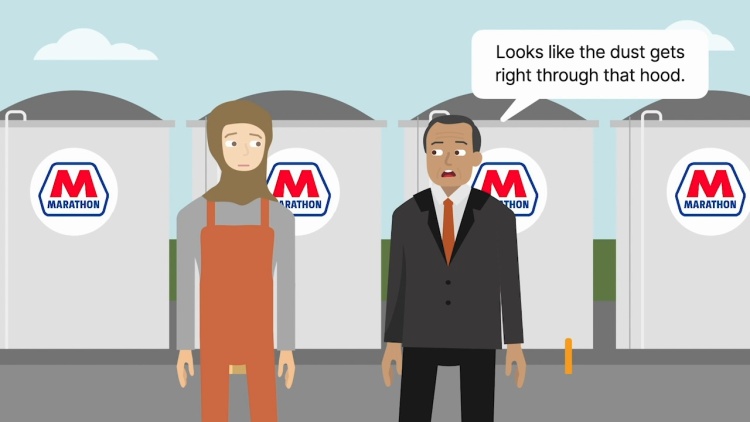Anderson v. Marathon Petroleum Co.
United States Court of Appeals for the Seventh Circuit
801 F.2d 936 (1986)
- Written by Robert Cane, JD
Facts
Donald Anderson (plaintiff) was diagnosed with silicosis, a serious lung disease caused by breathing in silicon dust over a long period of time. Anderson was exposed to silicon dust over a period of 13 years while sandblasting oil tanks several days per week for his employer, Tri-Kote, Inc., an independent contractor of Marathon Petroleum Co. (Marathon) (defendant). Sandblasting in a confined space, such as an oil tank, has been shown to create clouds of silicon dust. Anderson conducted sandblasting with only a desert hood, a wire-mesh mask that covered his nose and mouth but did not prevent dust from getting through the mesh, as opposed to protective equipment with a fresh-air hose. Marathon supervisors often observed Anderson exiting the oil tanks with silicon dust on his face and knew he was not provided adequate safety equipment. Marathon made no efforts to ensure that Tri-Kote protected its workers properly. Anderson’s two predecessors at Tri-Kote both died of silicosis. Anderson quit after being diagnosed with silicosis and brought this personal-injury claim. The district court granted a directed verdict for Marathon after finding Anderson had failed to show a breach of duty by Marathon. Anderson appealed to the United State Court of Appeals for the Seventh Circuit and died while the case was on appeal.
Rule of Law
Issue
Holding and Reasoning (Posner, J.)
Dissent (Swygert, J.)
What to do next…
Here's why 907,000 law students have relied on our case briefs:
- Written by law professors and practitioners, not other law students. 47,100 briefs, keyed to 996 casebooks. Top-notch customer support.
- The right amount of information, includes the facts, issues, rule of law, holding and reasoning, and any concurrences and dissents.
- Access in your classes, works on your mobile and tablet. Massive library of related video lessons and high quality multiple-choice questions.
- Easy to use, uniform format for every case brief. Written in plain English, not in legalese. Our briefs summarize and simplify; they don’t just repeat the court’s language.





